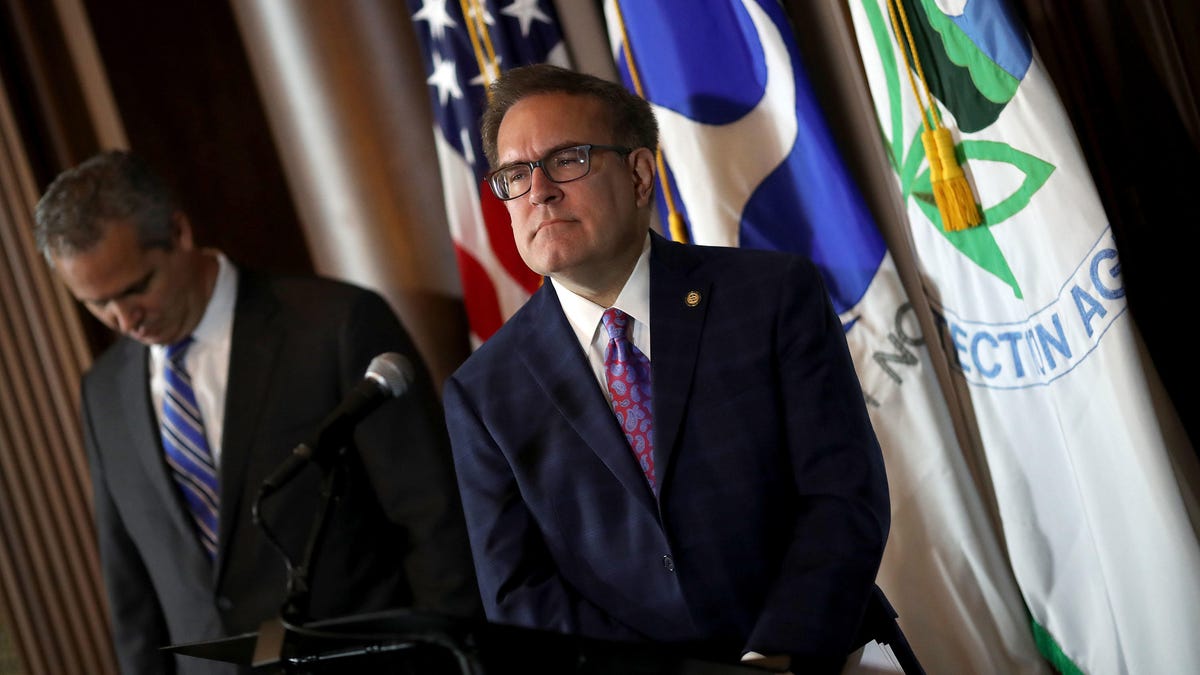Trump administration's EPA slams California air quality, could revoke highway funds
The EPA argues that California hasn't enforced basic requirements of the Clean Air Act.

If California doesn't act, the feds may withhold federal highway funds.
The Trump administration on Tuesday upped the ante in an ongoing war over emissions, pollution and the state of California when the EPA announced it has taken action on the state's air quality issues.
EPA Administrator Andrew Wheeler sent a letter to the California Air Resources Board Chairman, Mary Nichols, declaring that the federal government will begin to eliminate its backlog of California State Implementation Plans. These SIPs are regulations used in a specific territory or state to reduce air pollution in areas that do not meet National Ambient Air Quality Standards.
NAAQS, by default, work to ensure Americans breathe clean air. The EPA argues California has failed to ensure this to its citizens.
"California has failed to carry out its most basic responsibilities under the Clean Air Act, and as a result, millions of Californians live in areas that do not meet our nation's air quality standards," Wheeler said in the letter. He added the agency is ready to work with California to fix air quality issues, but threatened consequences if the state does not act.
CARB responded to Wheeler's letter saying, "The letter from the EPA contains multiple inaccuracies, omissions and misstatements. EPA has unclean hands: It sat on these documents for years and is now pounding the table about paperwork issues of its own creation."
The agency added, "We will continue to do work with EPA on its backlog, but EPA also needs to do its job and protect air quality. California and other states had to go to court, repeatedly, to get the EPA to implement the strict smog standards it claims to be worried about. California has met federal standards in the past and we are working hard to meet the current ones. But we cannot get there until the federal government addresses emissions of federally regulated mobile sources, including heavy-duty trucks, locomotives, planes and ships."
If California fails to begin withdrawing SIPs that are inactive or do not meet EPA criteria, the agency proclaimed it has the ability with the federal government to, at most, revoke federal highway funds for the state. California receives billions of dollars in federal funds for its highway system. It's also the most populous state in the country.
The EPA said if the state does not withdraw these SIPs it may also evaluate them itself and develop federal plans to "protect public health" in the state. "We certainly want to avoid these statutory triggers, but our foremost concern must be ensuring clean air for all Americans. That is our goal," Wheeler added in the letter.
The move is the latest shot fired at California from the Trump administration following confirmation it will revoke the state's waiver process. The system, signed into law as part of the 1970 Clean Air Act, allowed California to apply for additional waivers to oversee more stringent regulations to combat air quality issues. The Trump administration believes a specific waiver in 2013 granting it authority over greenhouse gas emissions went too far. California has already announced it will lead a legal challenge against the administration that could prove lengthy.
As part of its response to the letter, CARB didn't downplay the coincidence of the timing.
"This letter appeared only days after EPA attacked our state authority on cars, increasing air pollution while at the same time limiting our ability to reduce it. If the Trump administration is serious about air pollution it will reconsider revoking our waiver, and while they're at it, why not also fund the EPA to review submitted documents in less than a decade?"
Originally published Sept 24., 9:37 a.m. PT.
Update, 12:41 p.m.: Adds comments from CARB.

